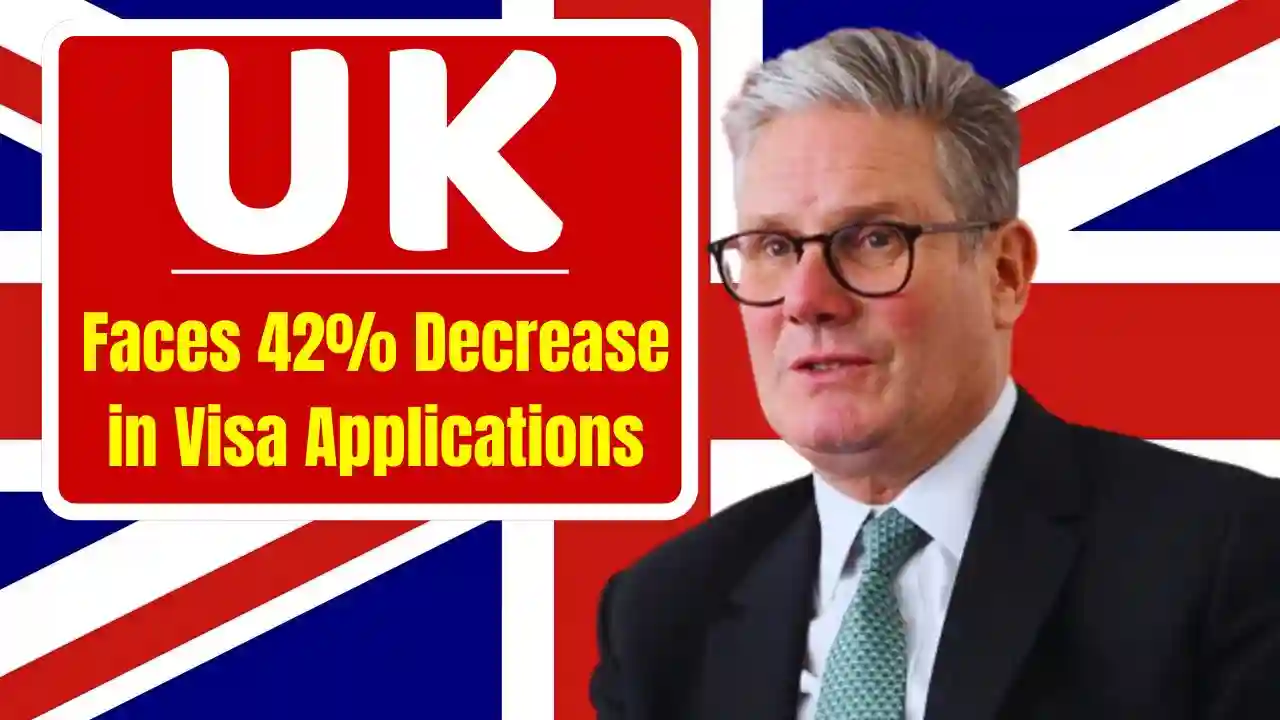Visa applications to the United Kingdom have stuttered by about 42% since the introduction of new and tougher rules concerning immigration. This steep fall is evidently as a result of the tightening by the government in policies rippling widespread talk about their consequential meaning to the economies, labor markets, and international relations.
Understand the New Stricter Immigration Policy
The new immigration rules brought in by the UK government have culminated in a significant drop in net migration and set high standards for the highly skilled workers. Notably, there are stringent income thresholds for obtaining a work visa, stricter language requirements, and limited access to some of the visa categories. International students have also become victims of the new rules, especially denial for their partners to come with them, or students cannot switch to a work visa after graduating.
These measures are part of the package with which the government controls migration and are aimed at domestic pressures generated by the labor market and public services. However, it leaves many questions regarding the applicability of the measures in how they will affect the sectors where workforces depend highly on foreign workers.
Effects on Various Visa Categories
A significant drop in the number of visa applications is observed in categories like student visas and skilled worker visas. Universities have received reports of marked declines in international enrollments from countries like India and Nigeria, which had previously been important suppliers of overseas students.
These are some of the industries already beginning to feel the effects of this trend on the labor market: health care, hospitality, and agriculture-these are decades-old industries that have relied on migrant workers. Employers in these areas have already begun to express their concerns regarding the difficulty in filling roles which may have a bearing on the productivity and recovery of the economy.
Economic and Social Effects
The decrease in visa applications happens at a very critical moment concerning the UK, which has quite a bit of renewed vigor from various sectors in the country to encourage labor shortages. Fewer international students could also lead to lesser tuition revenue for universities and lessen the cultural and academic diversity they avail of campuses.
Concerns about growth and innovation in business are also brought up here. Indeed, the contribution of overseas skilled migrants to the UK’s economic structure in areas like technology, healthcare, and engineering will be reduced in the long run by substantial declines in these applications.
International Image and Competitiveness
A furor has erupted about the global standing of the UK because of the harsher immigration regulations. The voices that oppose the clampdown predict that these fresh moves would deter potential geniuses and students from favoring the UK against countries like Australia and Canada, having a more liberal immigration policy. May be with time, these changes will adversely impact the competitive status of the country on the world stage and affect its ability to attract and retain top talent.
Renewed Calls for Policy Review
These developments have prompted calls by several organizations that the government reassess its immigration policies. An appealing point of balance would be an understanding that while migration is to be managed, governments must not destroy those sectors that very much depended on talent from abroad. In this regard, consideration should be given for the introduction of specific visa programs to address industry needs and a stronger incentive for the international student population to stay and contribute to the economy after graduation.
The Future
The cut in the number of UK visa applications by 42% is testimony to how different sectors have already begun to feel the effects of the new immigration rules. It will be a precarious balancing act through which the country will steer as it seeks to cradle the concerns of migration control on an axis of the economy. Policymakers will have their work cut out for them when they manage the conflicting demands of the labor market while being responsive to the public on immigration.
The coming months would have much impact on decisions of great importance in determining the long-term implications that such policies would have or if amendments are to be introduced that would sustain Britain’s global competitiveness and economic stability.




